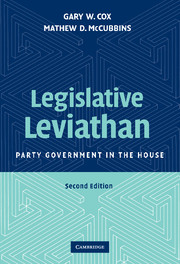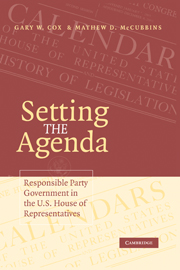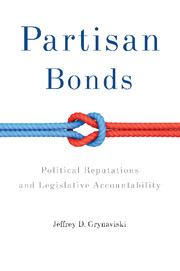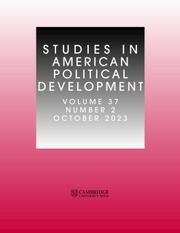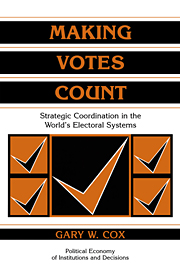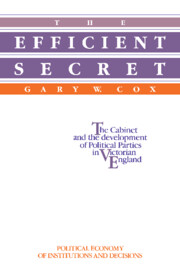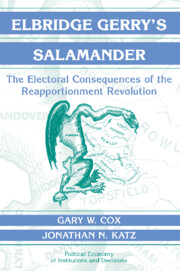Legislative Leviathan
The second edition of Legislative Leviathan provides an incisive new look at the inner workings of the House of Representatives in the post-World War II era. Re-evaluating the role of parties and committees, Gary W. Cox and Mathew D. McCubbins view parties in the House - especially majority parties - as a species of 'legislative cartel'. These cartels seize the power, theoretically resident in the House, to make rules governing the structure and process of legislation. Most of the cartel's efforts are focused on securing control of the legislative agenda for its members. The first edition of this book had significant influence on the study of American politics and is essential reading for students of Congress, the presidency, and the political party system.
- Application of cartel theory to the Republican controlled House
- Up-to-date reviews of existing literature
- Features an extensive range of quantitative evidence in support of the agenda control theory
Reviews & endorsements
"Legislative Leviathan was a stellar piece of research that had a profound impact on how scholars thought about the Congress. It was marked by clear and compelling theory, sophisticated analysis, and an enormous amount of relevant and convincing evidence. In this revised edition, updated by consideration of the period of the Republican majority and with discussions of recent research, ’Leviathan’ remains one of the truly essential works for students of the legislative politics."
David Rohde, Duke University
"In Legislative Leviathan, Cox and McCubbins have produced the most sophisticated, nuanced theoretical treatment of congressional parties to date. It is a special treat to see that they have incorporated the most recent thinking about congressional parties in this new edition. If you read and learned from the first edition, you must read this edition, too. If you are new to the subject of congressional parties, then start here."
Steven S. Smith, Washington University, St. Louis
Product details
March 2007Hardback
9780521872331
328 pages
229 × 152 × 22 mm
0.558kg
36 tables
Available
Table of Contents
- Part I. The Autonomy and Distinctiveness of Committees:
- 1. Self-selection and the subgovernment thesis
- 2. The seniority system in Congress
- 3. Subgovernments and the representativeness of committees
- Part II. A Theory of Party Organization:
- 4. Institutions as solutions to collective dilemmas
- 5. A theory of legislative parties
- Part III. Parties as Floor Voting Coalitions:
- 6. On the decline of party voting in Congress
- Part IV. Parties as Procedural Coalitions: Committee Appointments:
- 7. Party loyalty and committee assignments
- 8. Contingents and parties
- Part V. Parties as Procedural Coalitions: The Scheduling Power:
- 9. The majority party and the legislative agenda
- 10. Controlling the legislative agenda.

